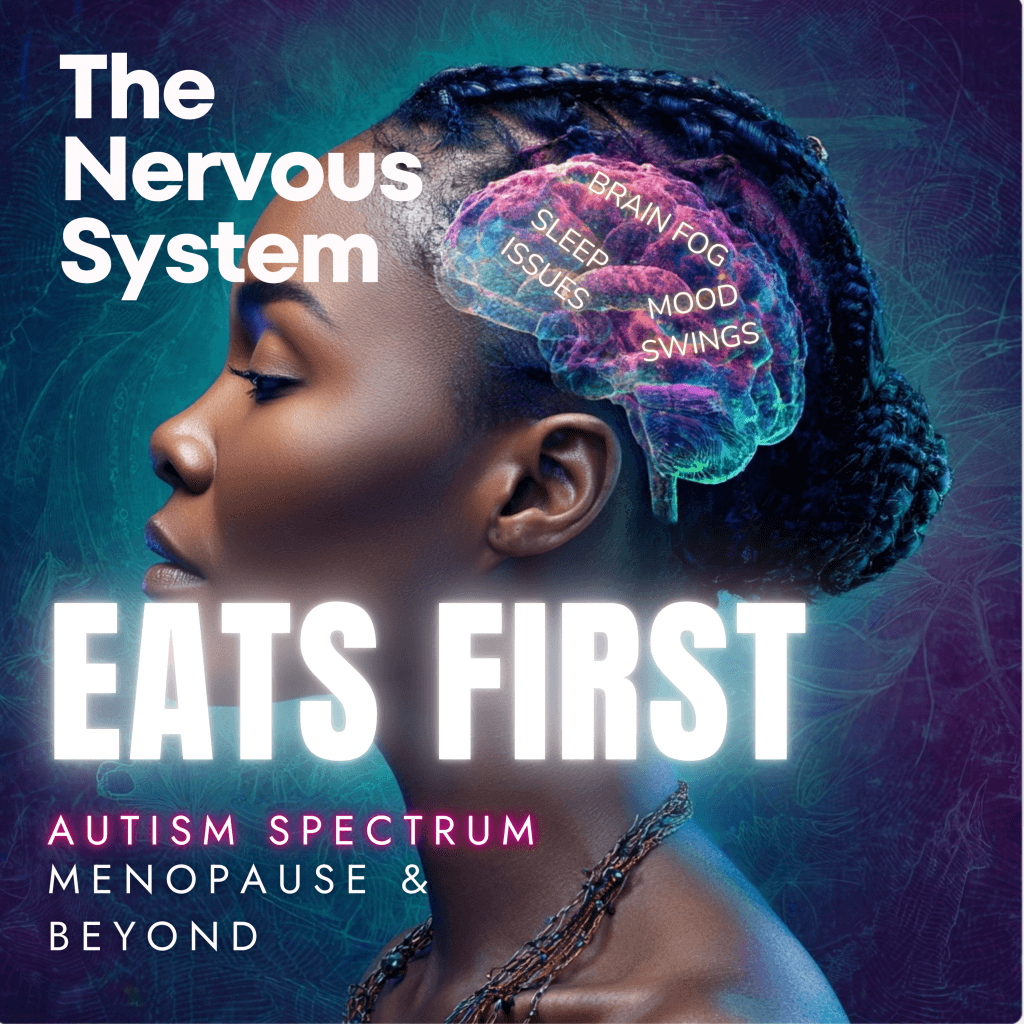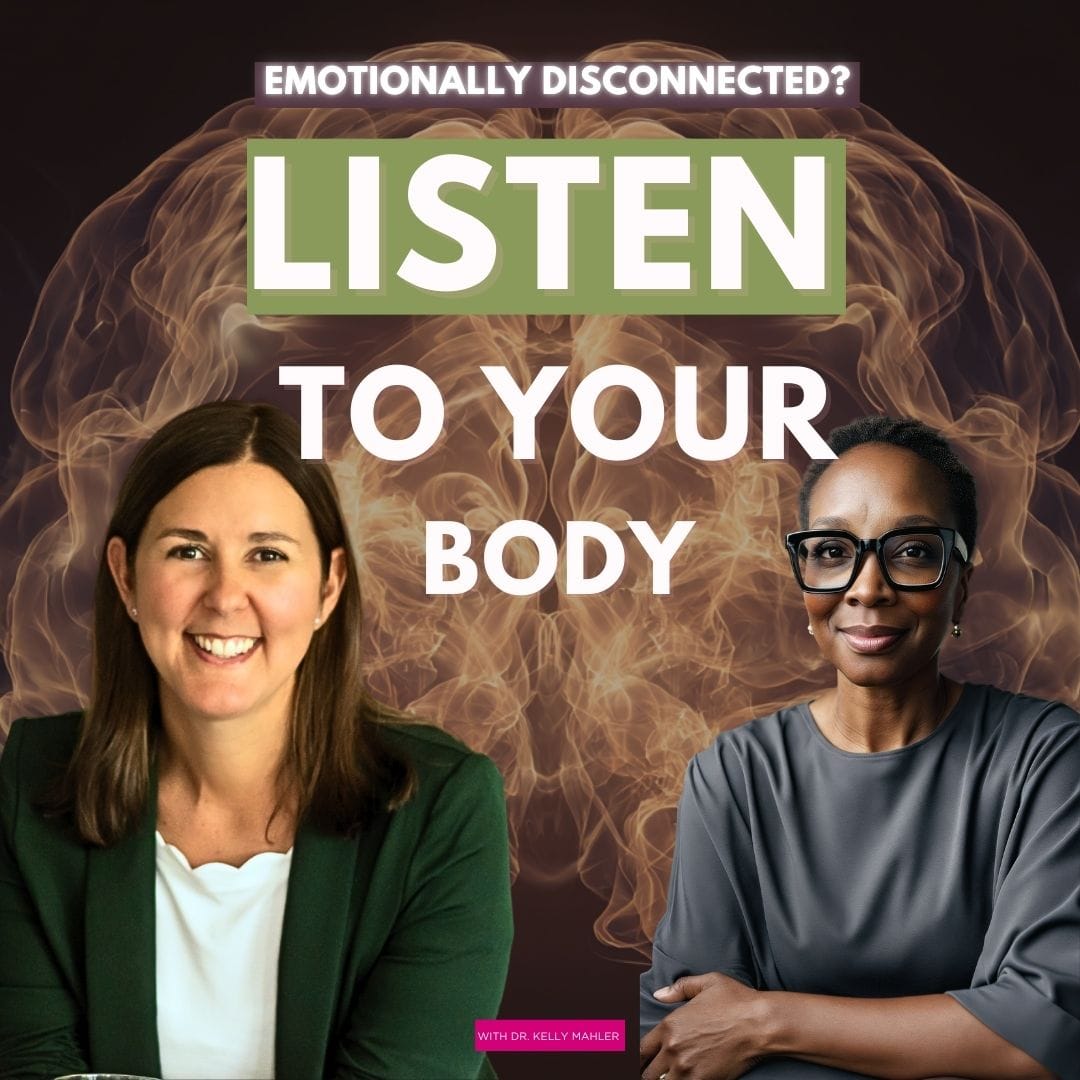The Nervous System Eats First: Autism Spectrum, Menopause & Beyond Podcast
A podcast for women 40+ navigating menopause, autism, and emotional burnout. Now streaming in full color — with story, science, and sensory ritual.
FOLLOW US
Watch on YouTube
The Nervous System Eats First is a visual podcast for midlife women seeking emotional clarity, nervous system healing, and freedom from sensory overload.
Hosted by Dr. Stacey Denise — The Neuroaesthetic MD™ — this series blends lifestyle medicine, color psychology, story, and somatic design to help neurodivergent and high-functioning women reset their energy and restore intimacy without shame.


Featured Episode
Do You Feel Emotionally Numb or Disconnected in Midlife? You’re Not Alone. with Dr. Kelly Mahler, OTD, OTR/L
Have you ever said, “I don’t even recognize myself anymore” — but your labs come back “normal”?
That gap between how you feel and what you can explain isn’t weakness. It has a name: interoception — the body’s hidden sense that helps you feel safe, centered, and alive. When menopause, neurodivergence, or trauma mutes that internal signal, your nervous system loses its compass. The result? Alexithymia, shutdown, and emotional disconnection.
In this conversation, Dr. Stacey Denise sits down with Dr. Kelly Mahler, award-winning occupational therapist and interoception researcher, to unpack the sensory and emotional truth behind why midlife can feel so flat — and what it takes to feel again.
Why This Podcast Is Different
Hosted by Dr. Stacey Denise, a lifestyle medicine physician and neuroaesthetic designer, The NeuroaestheticMD dives deep into how sensory inputs shape health, beauty, and behavior. If you’re exhausted by noise and numb to the grind, this podcast offers clarity, color, and calm.
What We Talk About
Real questions. Rooted answers.
When your nervous system is in a chronic state of alert — even subtly — your body starts treating everyday life like a threat. This “always on” feeling is less about stress and more about lack of safety. In my work, we reset that pattern through rhythm, color, and ritual — because the nervous system speaks the language of sensation, not just logic.
Menopause isn’t just a hormonal shift — it’s a neurological and sensory one too.
As estrogen dips, your brain’s ability to modulate mood, sleep, and stress is impacted.
If you’ve already been masking, people-pleasing, or “performing wellness,” this shift can unravel everything that once worked.
Regulation becomes a necessity, not a luxury — and that’s where nervous system literacy changes everything.
Yes, it often is — and it shows up earlier, deeper, and more invisibly.
Autistic and highly sensitive women process more stimuli per moment, which means their bodies work overtime just to exist in typical environments. Burnout for us isn't laziness or low resilience. It’s a call for recalibration.
That’s where sensory medicine becomes a form of self-trust.
Disconnection often means your nervous system has gone into protective mode — not because you're broken, but because you're tired.
When you’ve spent years managing, fixing, or adapting, your body eventually says “enough.”
Healing begins when we stop asking what’s wrong with me and start listening to what your body is whispering through silence, cravings, and fatigue.
Yes — and that’s the essence of neuroaesthetic medicine.
Color isn’t just decoration. Rhythm isn’t just routine. These are sensory nutrients your nervous system uses to feel safe, stable, and expressive.
When we curate your environment with intention — whether through your space, your wardrobe, or your rituals — healing becomes embodied, not just aspirational.


